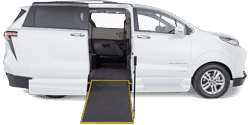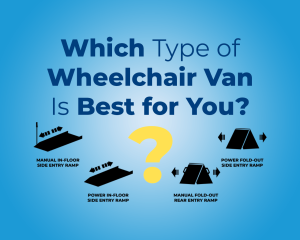Becoming a caregiver is a responsibility that can be equally as rewarding as it is stressful. Before getting started, it’s paramount to learn to support a loved one with disabilities. Using all of the resources available to you is an necessary first step in developing that caregiver skill. What follows is a guide to becoming a caregiver to a family member.
Realize Your Caregiver Role
Many people caring for family members with disabilities take on the duties of a caregiver without knowing they’ve shouldered it. They start by doing smaller tasks like picking up medication or doing the laundry, but before they know it, that loved one may begin to depend on them to aid their mobility goals.
In a nationwide study of caregivers, AARP cited 85% of caregivers are related to the recipient, while 49% of caregivers felt obligated to become a caregiver for a loved one. Family members who take on the role as caregiver simply think they are trying to help.
But formally accepting your role as a caregiver is important for your happiness too. Being a caregiver enables certain responsibilities to help your family member with disabilities by setting boundaries and expectations. Next Step in Care states, “The reality is that ‘taking care’ in today’s complicated health care world goes far beyond what any family member had to do in the past.” For example, a caregiver today has the right to:
- look into the recipient’s medical information,
- make decisions about the recipient’s care,
- and receive training to learn further ways they can help the recipient.
Caregiver Expectations
The first step to starting life as a caregiver is to learn everything about your loved one’s condition. It’s important to learn what skills are needed to care for your loved one and how to treat their specific condition, such as the following:
- It is a good idea, and a requirement in some states, to get CPR-certified in case of emergencies. Here is a list of the necessary licensing and training requirements to be considered a caregiver in each state.
- The Family Caregiver Alliance urges you to find support for yourself and the loved one you are caring for. Support groups with similar disabilities or caregivers, assistance from other family members, and talking with a professional about personal struggles with the role are all great options when looking for support. The main thing to remember is to ask for help when feeling overwhelmed and to ease caregiving stress when possible.
- Make sure to take care of yourself too. It’s difficult to provide the best care for your family member if you aren’t in the best condition yourself. Including not only your physical health but your mental health as well. To keep your mental health in check, the Center for Disease Control and Prevention states: “Work hard to maintain your personal interests, hobbies, and friendships. Don’t let caregiving consume your entire life. This is not healthy for you or those you care for. Balance is key.”
- Set realistic daily goals to help you feel confident in yourself and your caregiving.
- Know of the resources available to caregivers in your area. In a 2014 study of caregivers, Caring.com cites that nearly half (46%) of family caregivers spent more than $5,000 annually in caregiving costs. Meaning, getting any kind of break as a caregiver is imperative, especially in a financial sense.
Caregiver Resources
There are many resources for caregivers to use, including:
- Government programs
- State programs
- And housekeeping services, like maids
There are many government programs that can lessen the financial burden that caregiving has on the caregiver and recipient. For example, Medicaid offers caregiver stipends for recipients with lower incomes that can be used for anything related to their care. If your recipient was a member of the armed forces, Veteran Affairs offers financial support similar to Medicaid for veterans and their caregivers.
Check if your state has any programs for financial support. Here is a comprehensive list of the state-level government programs most widely used by recipients and their caregivers.
Consider some housekeeping services that can alleviate some of your duties as a caregiver. Hire a maid to take care of the cleaning and laundry so you can focus on the more important things your family member may require. Also, if you aren’t able to provide every meal for your recipient, services like Meals on Wheels will deliver meals to your recipient daily for a small fee.
Caregivers are essential to maintaining the quality of life for a person with disabilities. They provide a much-needed service that can be very fulfilling. With the right assistance, information, and support, almost anyone can get started as a caregiver. For more information on all of the duties and responsibilities associated with caregiving, read Caregiver Duties and Responsibilities Guide.

















